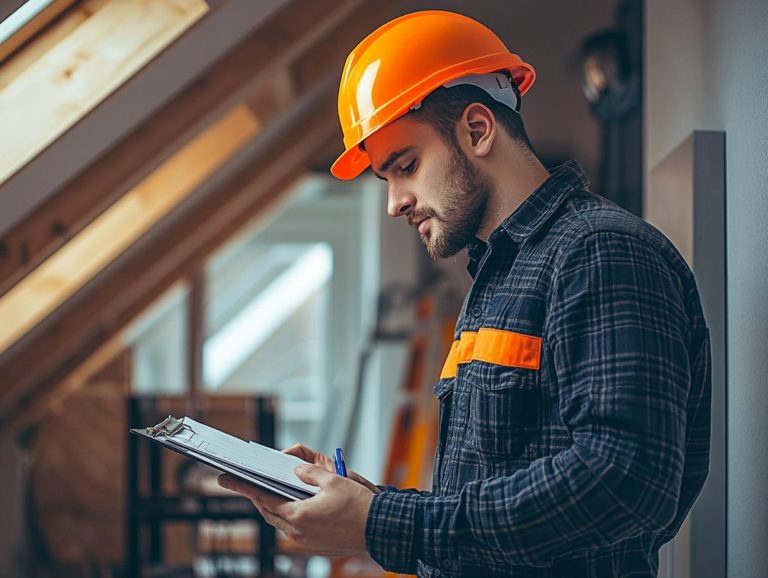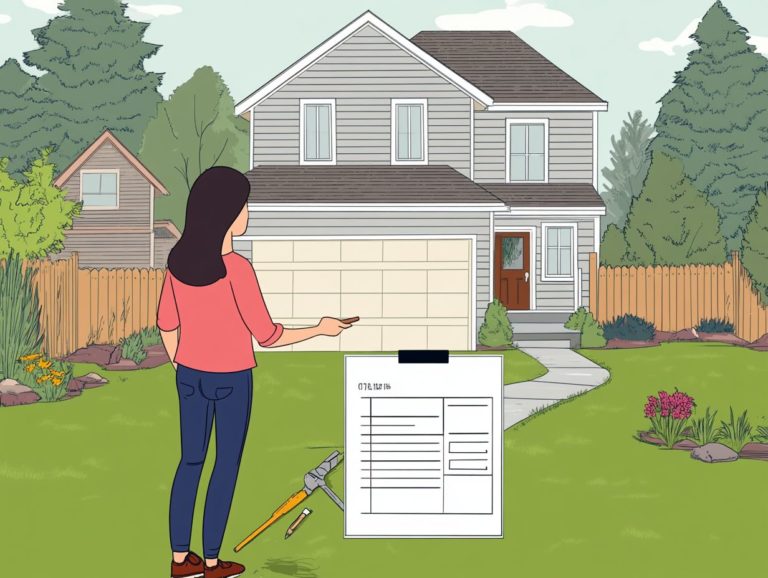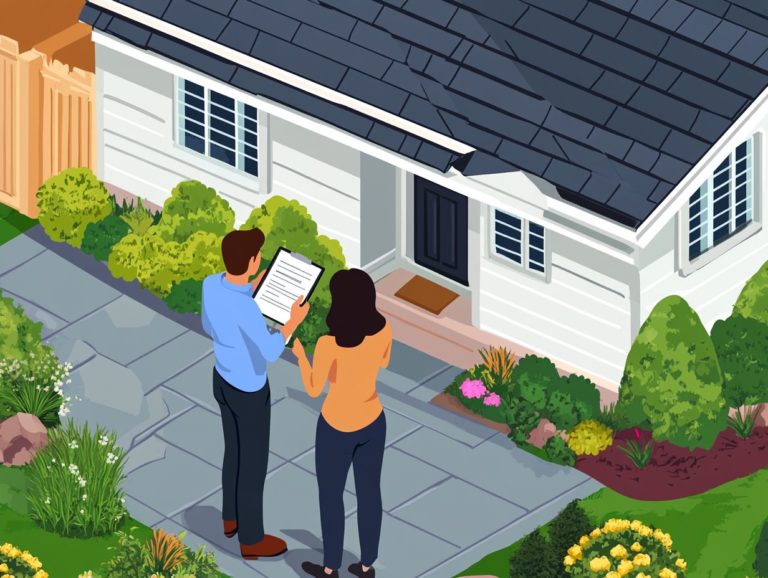How to Spot a Good Home Inspector
Buying a home stands as one of the most significant decisions you’ll ever make, and the importance of a thorough home inspection is critical.
A skilled home inspector has the ability to uncover hidden issues, potentially saving you from costly repairs in the future.
But how do you find someone trustworthy and competent for the job? This article will navigate you through the essential qualities of a good home inspector, critical questions to pose, red flags to be aware of, and effective research methods to ensure you make an informed choice.
Your future home deserves the best inspection!
Contents
- Key Takeaways:
- The Importance of a Good Home Inspector
- Qualities of a Good Home Inspector
- Questions to Ask a Potential Home Inspector
- Red Flags to Watch Out For
- How to Find a Good Home Inspector
- Frequently Asked Questions
- What qualities should I look for in a good home inspector?
- How can I verify the credentials of a home inspector?
- Is it important for a home inspector to have insurance?
- How long does a typical home inspection take?
- Can I attend the home inspection?
- Should I hire a home inspector recommended by my real estate agent?
Key Takeaways:
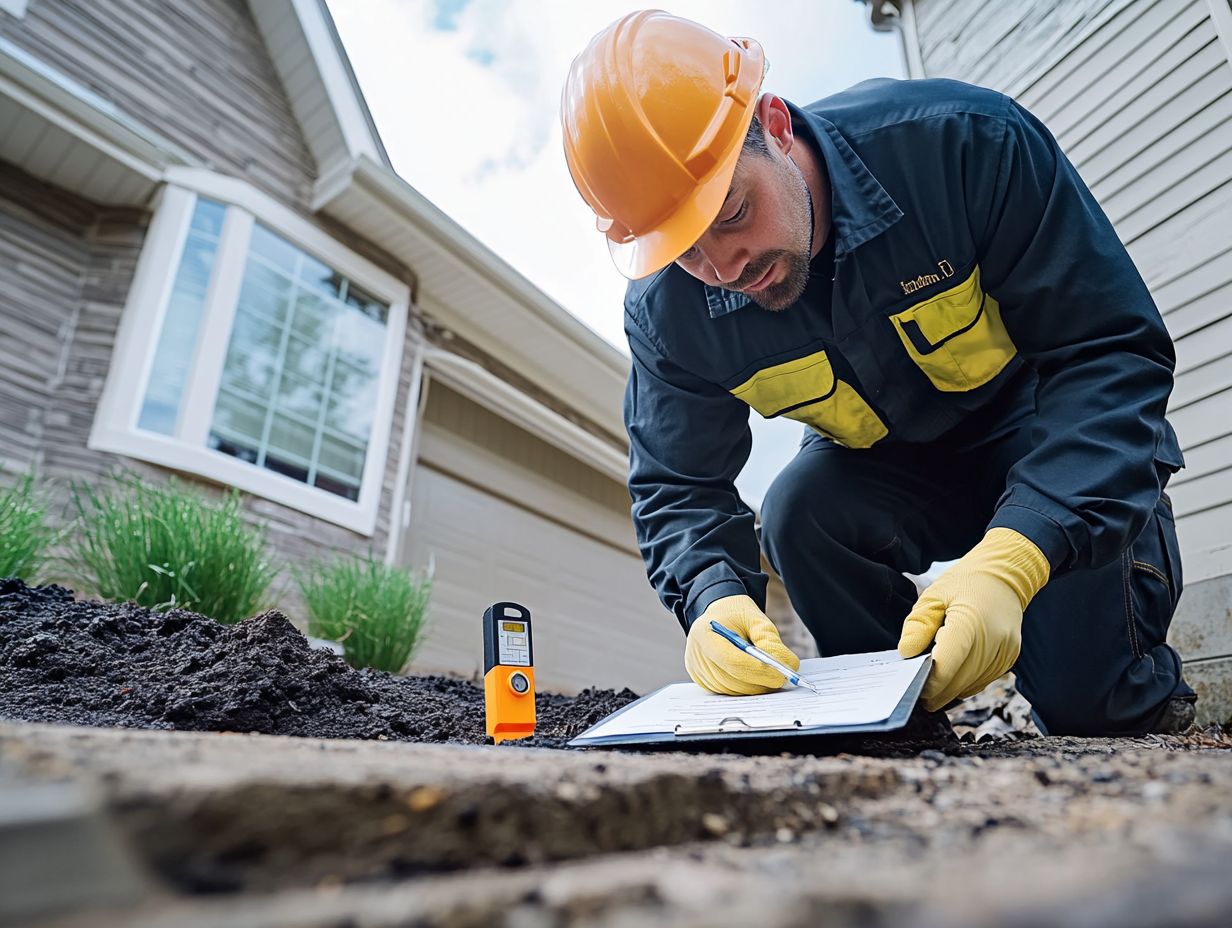
A good home inspector should be thorough, detail-oriented, and have a keen eye for potential issues that may not be immediately visible. It’s also important to understand home inspector qualifications to ensure you choose the right professional for the job.
When looking for a home inspector, ask about their experience, certifications, and references. Be sure to ask specific questions about their process.
Beware of home inspectors who offer unusually low prices, have a lack of certifications, or seem hesitant to provide references or answer questions.
The Importance of a Good Home Inspector
A skilled home inspector is essential in the home buying journey, ensuring you are thoroughly informed about the condition of the property you are considering.
They carefully check critical systems such as the foundation, exterior, roof condition, electrical systems, plumbing, and ventilation areas that may conceal hidden issues leading to expensive repairs.
Safety features like safety glass, which prevents shattering, and ground fault interrupters that protect against electrical shocks, are also checked to safeguard you from potential hazards.
By obtaining a comprehensive inspection report, you can make well-informed decisions and confidently secure your investment in quality construction.
Why a Thorough Inspection Matters
A thorough home inspection is absolutely essential for you to identify potential issues that could impact both the safety and value of a property, especially if you re a first-time homebuyer unfamiliar with common pitfalls. These inspections reveal hidden problems, ensuring you fully understand the true condition of the home before making any final purchase decisions.
This proactive approach not only helps you avoid costly repairs in the future but also significantly reduces your risk as a potential homeowner. By investing in a professional inspection, you can navigate the financial landscape of homeownership with confidence, knowing you re making an informed choice.
The costs associated with these inspections are often minimal compared to the expenses that can arise from unforeseen repairs. Engaging licensed inspectors from a trusted professional network guarantees quality evaluations.
The importance of being prepared for severe weather impacts, like flooding or structural damage, cannot be overstated; an inspection will reveal vulnerabilities that you might otherwise overlook.
Qualities of a Good Home Inspector
Identifying a reputable home inspector is essential for guaranteeing a thorough and dependable home inspection process. Knowing what to look for in a home inspection report ultimately helps ensure a successful property evaluation.
You want to ensure that the inspector is not only licensed but also adheres to rigorous certification standards. A qualified inspector should demonstrate a comprehensive grasp of an inspection checklist that covers every critical aspect of the home, from structural integrity to safety features.
Key Characteristics to Look For
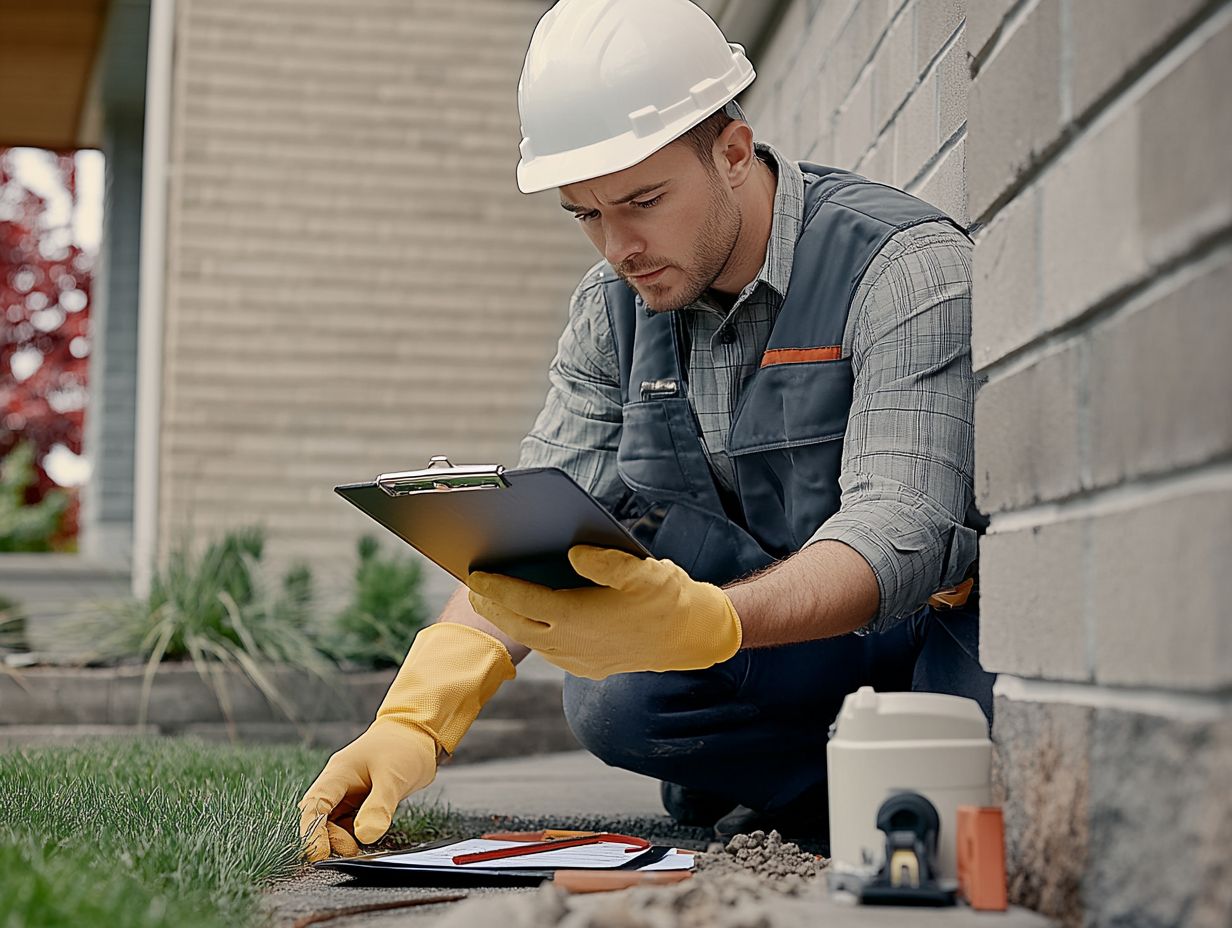
When you re on the hunt for a home inspector, prioritize key traits like proper licensing, extensive experience, and a dedication to using specialized equipment think thermal imaging to uncover hidden issues. A top-notch inspector will provide you with a detailed quote and a comprehensive inspection report that clearly outlines their findings and recommendations.
Effective communication skills are absolutely essential in this journey. They enable the inspector to break down complex issues into straightforward insights that are easy for you to grasp.
Thoroughness in inspections not only ensures that every potential concern is identified but also builds trust and confidence in the process.
By employing advanced tools and techniques, such as moisture meters and gas leak detectors, the inspector can elevate the quality of the assessment. Plus, offering tailored recommendations for repairs and maintenance will empower you, arming you with the knowledge you need to make informed decisions about your potential investment.
Questions to Ask a Potential Home Inspector
Asking the right questions can help you select a competent home inspector during your home buying journey.
Inquire about their experience, the inspection guidelines they follow, and how they conduct the property assessment.
These factors play a crucial role in determining the quality of the inspection and the recommendations you ll receive as a homebuyer.
What to Ask During the Interview Process
During your interview, ask prospective home inspectors practical questions about their services.
Inquire about the format of their inspection reports, estimated costs, and whether they offer specialized inspections like mold or lead testing.
Understanding their qualifications and licensing is essential for ensuring a thorough property assessment.
Also, ask about the inspector’s commitment to following industry rules and any certifications from recognized organizations.
Discuss the tools and specialized equipment they use during inspections; this can significantly impact their evaluations.
Transparency in communication fosters trust, allowing you to feel confident in your decisions.
A well-structured inspection report will outline findings clearly and help you understand the property s status, enabling you to make informed choices.
Red Flags to Watch Out For
Spotting red flags when hiring a home inspector is vital to protect your investment!
As a homebuyer, remain vigilant about inspectors who:
- Neglect to use a comprehensive inspection checklist
- Fail to deliver a detailed report
- Lack the necessary licensing and credentials
These warning signs may indicate an unreliable inspector, potentially jeopardizing your investment.
Signs of an Unreliable Inspector
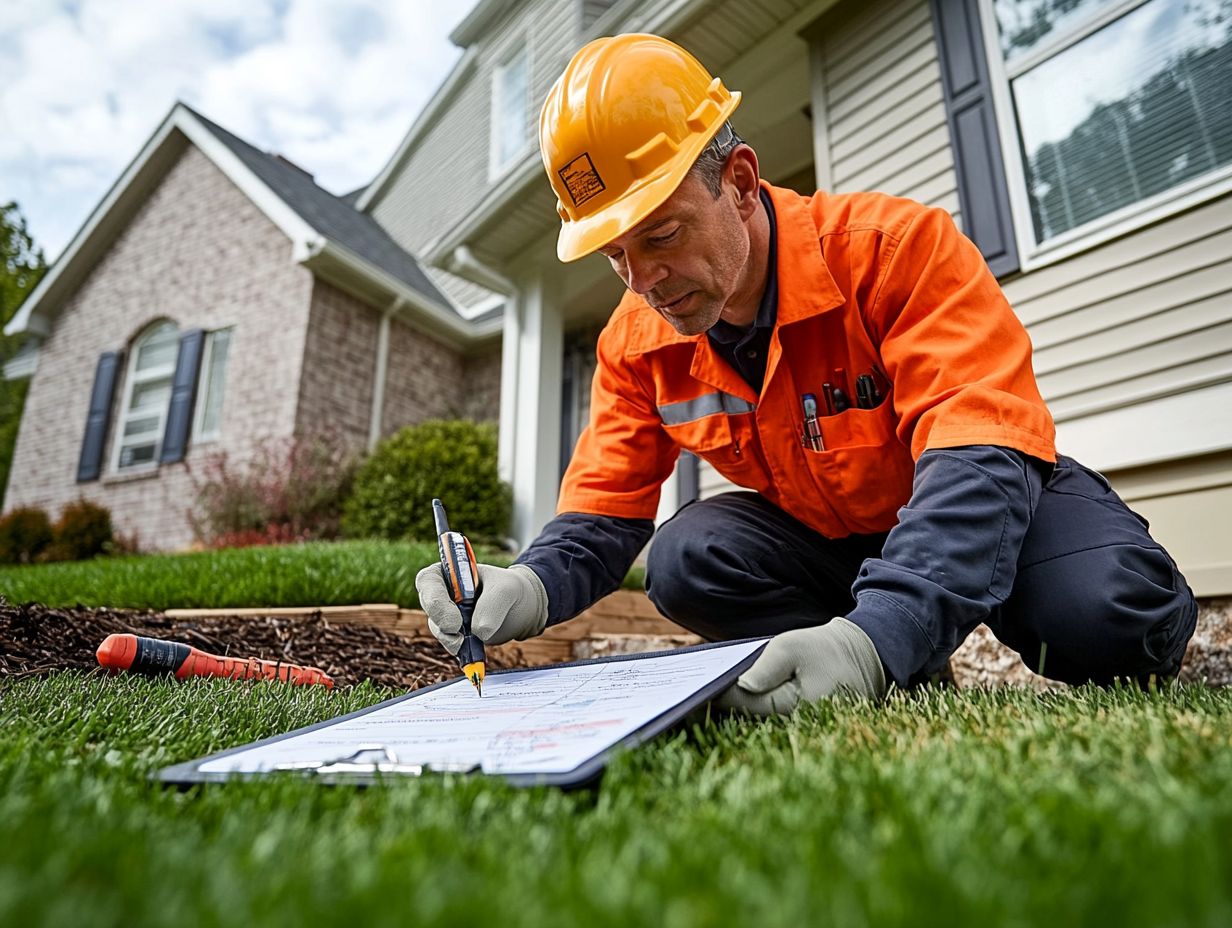
Look for vague or incomplete inspection reports, reluctance to answer your questions, or a lack of transparency about safety features evaluated during the inspection.
These behaviors may suggest the inspection is not thorough or credible.
If an inspector avoids discussing their qualifications or seems unaware of current building codes, that should raise a red flag.
Additionally, if they rush through the inspection or fail to provide detailed explanations during the walkthrough, it may indicate a lack of diligence.
These signs don t just reflect poorly on the inspector; they can have significant implications for you as a homebuyer.
Relying on incomplete or misleading information could lead to decisions that jeopardize your investment.
How to Find a Good Home Inspector
Finding a great home inspector is crucial for any property assessment. Start by seeking recommendations from trusted sources like real estate agents or friends who have recently purchased homes.
These recommendations provide insights into the quality of inspectors, guiding you toward a well-informed decision.
Start your search for a trustworthy home inspector today to secure your dream home!
Taking the right steps now will save you time and money later!
Research Methods and Recommendations
Effective research methods for finding a home inspector include online platforms like Angi or HomeAdvisor. These sites provide listings and ratings for licensed inspectors.
Gather recommendations from trusted real estate agents. This can connect you with credible inspectors who follow a thorough inspection process.
As you start your research, explore customer reviews and ratings. These insights reveal the strengths and weaknesses of various inspectors.
It’s crucial to ensure that the inspector you choose is skilled in specific areas, such as mold or radon testing. This diligence protects your investment and enhances your peace of mind.
Frequently Asked Questions
What qualities should I look for in a good home inspector?
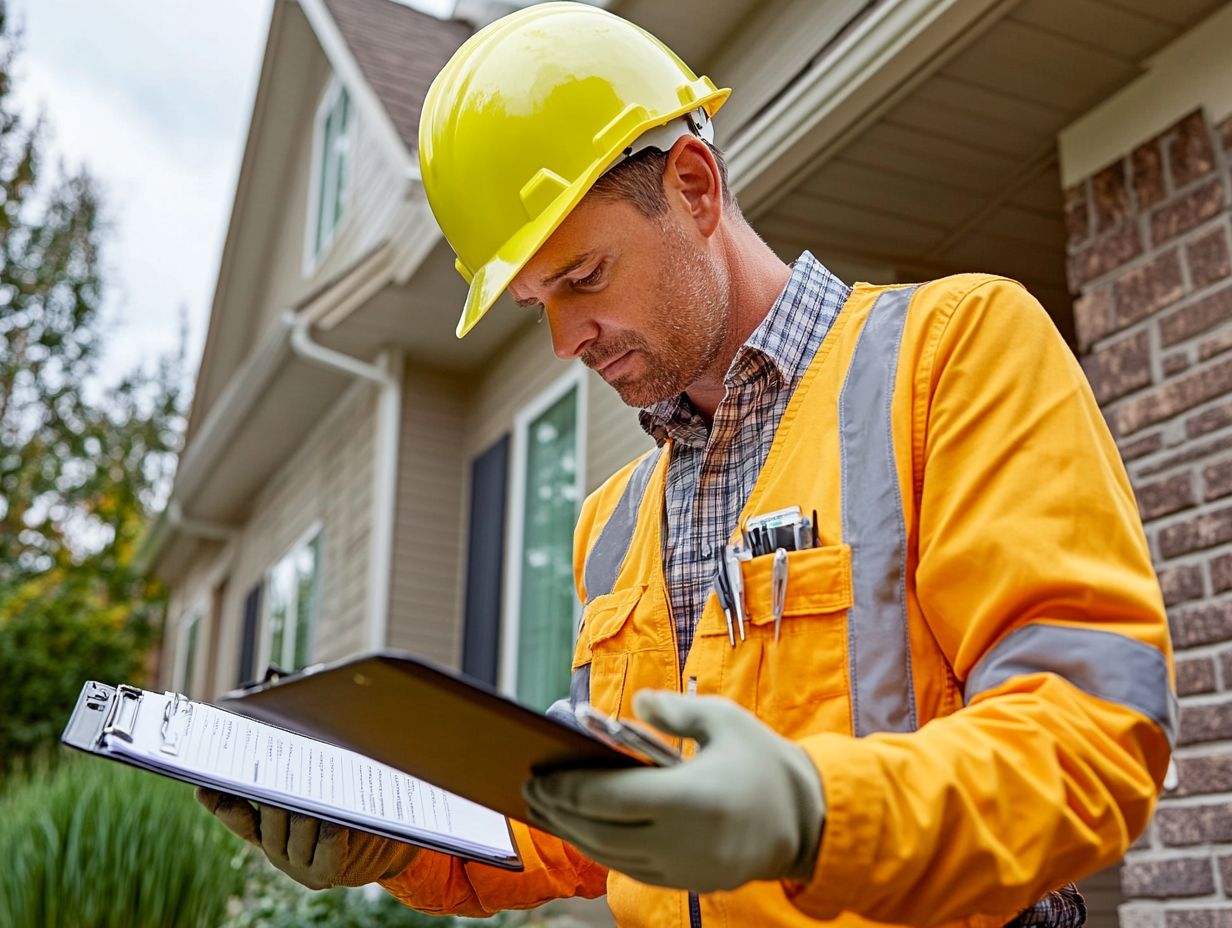
A good home inspector should have a strong knowledge of building codes and regulations. They should also have experience, excellent communication skills, and provide thorough, unbiased reports.
How can I verify the credentials of a home inspector?
Verify the credentials by checking if they are licensed and certified by reputable organizations like InterNACHI or ASHI. Ask for references and read reviews from past clients.
Is it important for a home inspector to have insurance?
Yes, having insurance, especially errors and omissions insurance, is crucial. This protects you and the inspector in case of mistakes during the inspection.
How long does a typical home inspection take?
The duration varies depending on the property’s size and condition. A thorough inspection should take about 2-3 hours for an average-sized home.
Can I attend the home inspection?
Yes, attending the home inspection is a great opportunity to ask questions. A good inspector will provide valuable maintenance tips and recommendations.
Should I hire a home inspector recommended by my real estate agent?
While agents may know inspectors, it’s essential to do your research. Choose an inspector based on their qualifications and experience for an unbiased inspection.
Start your search today to find the best home inspector for your needs!


